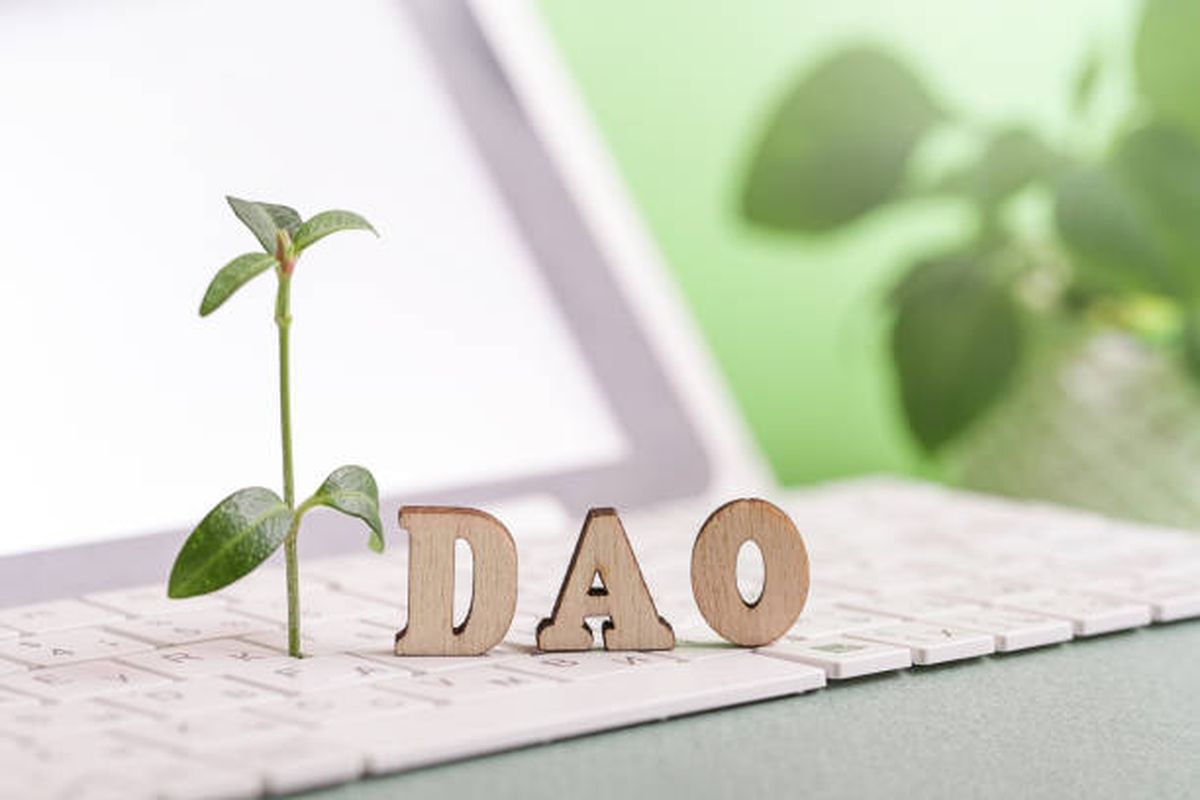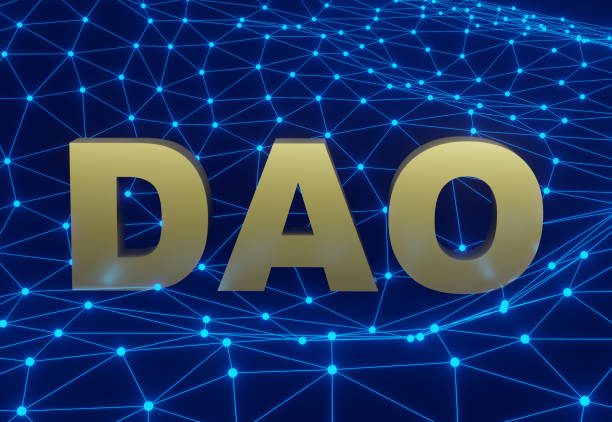A Decentralized Autonomous Organization (DAO) is described as a new type of Limited Liability Company (LLC) where no leading member of the organization holds any majority rule. In a typical LLC, members make critical decisions for the business.
Nonetheless, a DAO is structured in a decentralized manner. The concept of a DAO was first introduced by Dan Larimer, the founder of BitShares, Steemit, and EOS in 2015. It was later refined by Vitalik Buterin, Ethereum’s creator, in 2016. Since DAO LLC concepts have gained legal recognition in US states like Wyoming, the innovative structures seem to be gaining a lot of attention.
Operations of a DAO are primarily based on blockchain technology, meaning that transactions are executed using digital assets. Hence, the DAO LLC can conduct its operations autonomously via a series of “smart contracts” that work without any human interaction. The business can operate without any traditional business structure.
Instead of adopting the normal top-down hierarchy, “members” of the DAO have an equal say in the actions of the organization. It is important to explore the legal compliance components of BLOCKS, and then distinguish them from the available alternative non-LLC-based DAO.
Furthermore, it is advisable to look into what circumstances DAOs have a legal body backing them and the degree to which this is acceptable. With that in mind, investors and prospective token holders should feel comfortable with getting involved in a DAO. This is because of the thorough steps DAO LLCs have taken to mitigate token holder liability in decentralized organizations.
DAO LLC strives to establish a credible, cautious, and secure brand image; one that stands for socially responsible corporate operations. When brands like BLOCKS set off to incorporate as DAOs, two primary options were at play.
Related: DAOs Are The Foundation Of The Creator Economy, Web3, And The Future Of Work
The first was the old method adopted by most DAOs in the sector, aiming to get security in decentralization and avoid all legal structuring that restricts participant liability. Notably, this form of structuring leaves participants and the bigger organization at risk and with needless exposure to the always-changing regulatory space.
Working closely with legislators enables DAOs to pursue an LLC structure to not just get rid of the personal liability of participants, but also to adopt the legislature forerunners so that the DAO LLC can prepare for long-term operation and success in a legally-compliant way.
How Are DAOs Created?
Legally compliant DAOs are considered LLCs. That means the stakeholders enjoy limited liability. The organization is therefore considered its legal entity, irrespective of how it pays taxes. While one person or entity might form the DAO, the party does not retain full control over the Decentralized Autonomous Organization, since governance is done in a distributed manner thereafter.
Forming a DAO LLC needs several steps beyond those involved in a conventional LLC. Founders need to establish some rules and regulations for the DAO before it gets officially established via an “Operating Agreement”.
These rules are thereafter embedded in the code as the DAO progresses. The founders need to also establish how the DAO LLC will get funded before its formation. Furthermore, the DAO’s code, which includes any possible bugs and security issues, has to be vetted before the system can be fully deployed.
Developing a DAO is quite simple. First, the smart contract is developed and the DAO’s governance structure is created. The rules are embedded in the smart contract. After that, the DAO project has to raise capital to launch.
Related: DAO Creation: A Basic How To
DAOs normally get their funding by issuing DAO tokens, which give members voting rights in the DAO. Finally, the DAO’s operation is then implemented. Everything is sent to the blockchain. In case the DAO requires to make a decision, the community members need to vote upon these changes.
With that in mind, there are several important factors for everyone to know before forming a DAO. In this piece, drafted by the blockchain attorneys at Oberheiden, P.C., DAOs are explained. The attorneys also highlighted the main factors that one needs to consider when developing a DAO:
“People everywhere are starting to use DAOs as alternatives to organizing and managing a corporation. They offer flexibility and decision-making based on a consensus of the group. However, they lack the legal recognition of a corporate entity and a stable, consistent regulatory framework. As a result, federal agencies are more likely to scrutinize a DAO´s formation and management. Also, the DAO’s native token may be deemed “securities” and therefore any liability exposes the members to potentially unlimited liability. If you thinking about creating a DAO, contact an attorney experienced in DAO formation, structure, and how federal agencies are currently treating DAOs.” – Dr. Nick Oberheiden, Founding Attorney of Oberheiden P.C.
Why Choose To Develop A DAO LLC?
The greatest reason that a DAO is created as an LLC is the legal protections that come with a Limited Liability Company (LLC). In case an organization decides to develop the DAO first before it turns it into a DAO LLC, there are no legal measures put in place to protect investors and stakeholders from legal liability.
With regards to financial matters, mostly when dealing with cutting-edge technologies like Bitcoin, failing to set up an LLC around the DAO might be risky. Identifying the liable parties in a huge DAO might be challenging, but it still leaves the DAO investors and stakeholders open to legal backlash whenever something goes wrong.
A DAO comes with the added complexity that the stakeholders might be global. In that context, just the stakeholders within the country where the case is being heard are liable. In case a DAO forms a DAO LLC, then this scenario will never arise.
An LLC helps in protecting members from personal risk, and thus only the DAO itself will be liable in case any litigation happens. As an LLC, the DAO’s assets are the only assets that can face risks whenever the DAO gets sued. This possibility makes setting up an LLC crucial for any DAO. The main point here is that compliance is a perfect way to boost the image of DAOs.
Is A DAO + LLC Still A DAO?
2021 was the year of the DAO. Projects like Friends With Benefits, PleasrDAO, and ConstitutionDAO displayed the potential for collective action and governance. DAOs are novel legal structures that are said to have a big future. But, will they work in practice?
DAOs are communities primarily represented by rules encoded as a transparent computer program, controlled by the members and not influenced by a centralized authority. Although they were fatally affected by The DAO hack in 2016, they have resurrected and seem to be rising at a massive speed.
ConstitutionDAO was the most recent to receive international attention. It was formed by a community of crypto investors who unleashed a DAO with the primary objective of purchasing one of the 13 surviving copies of the US Constitution put up for sale at Sotheby’s NFT auction house in mid-November.
ConstitutionDAO launched just seven days before the auction and it requested donations from investors in exchange for tokens (PEOPLE) using a multisig wallet that has 13 signatories listed on its website. Within a week, the DAO managed to raise $40 million.
Although the DAO failed to win the auction, several takeaways from that incident may apply to other DAOs. First, it is about the token. Based on the terms and conditions made public on their site, donors had the right to redeem governance tokens that had the right to vote on various decisions.
These tokens did not represent any property segments of the Constitutional text in case they had won the auction. Instead, they represented the right to have a say on the proposal that was set forth by the DAO, including the presentation and management plans for the text.
Ownership of the constitution would be in the hands of a Delaware-based limited liability company (LLC) and hence its shareholders would effectively own the valuable piece.
Related: New Interest in DAOs Prompts Old Question: Are They Legal?
With most DAOs, a Delaware-based LLC holds full ownership rights and serves as the beneficiary of these funds, or some of them, raised in a token sale that gets launched by a DAO. It does not have any other responsibility apart from forwarding proposals on the asset exposure based on a vote with crypto.
Today, Delaware is the only place where it seems sensible to create a DAO as a unique legal entity, with similar legal protections to any other LLC. DAO LLCs are committed to creating optimal networks that reduce barriers to entry across non-traditional blockchain prospects.
For instance, BLOCKS DAO LLC has been working closely with Wyoming legislators to guarantee that each step was taken in the formation to ensure that it is optimally compliant. The LLC designation is meant to protect all stakeholders of the DAO in case any legal issues come up.
As Wyoming leads the way, other states and countries may recognize two types of DAOs: member-managed and algorithmically-managed.
The member-managed DAOs are governed via blockchain-based voting mechanisms. In that case, decision-making power is vested in the members, and the majority decisions rule. In the case of the algorithmically managed DAOs, they are wholly controlled by their smart contracts, with the same membership and voting rights rules.
Both types of DAOs are recognized by the law, and smart contracts are considered legally valid as Articles of Incorporation.
Nonetheless, before we can come up with a way to make DAOs legally highly efficient and safer than vintage limited firms, and it will be challenging to accomplish, DAOs are only in the front end. At the back end, an old-fashioned regulated corporate structure offers various protective rights appreciated when engaging in trustless and international crypto adventures.
Hence, the DAO LLC concept is still nascent and will need some more time to mature accordingly.











